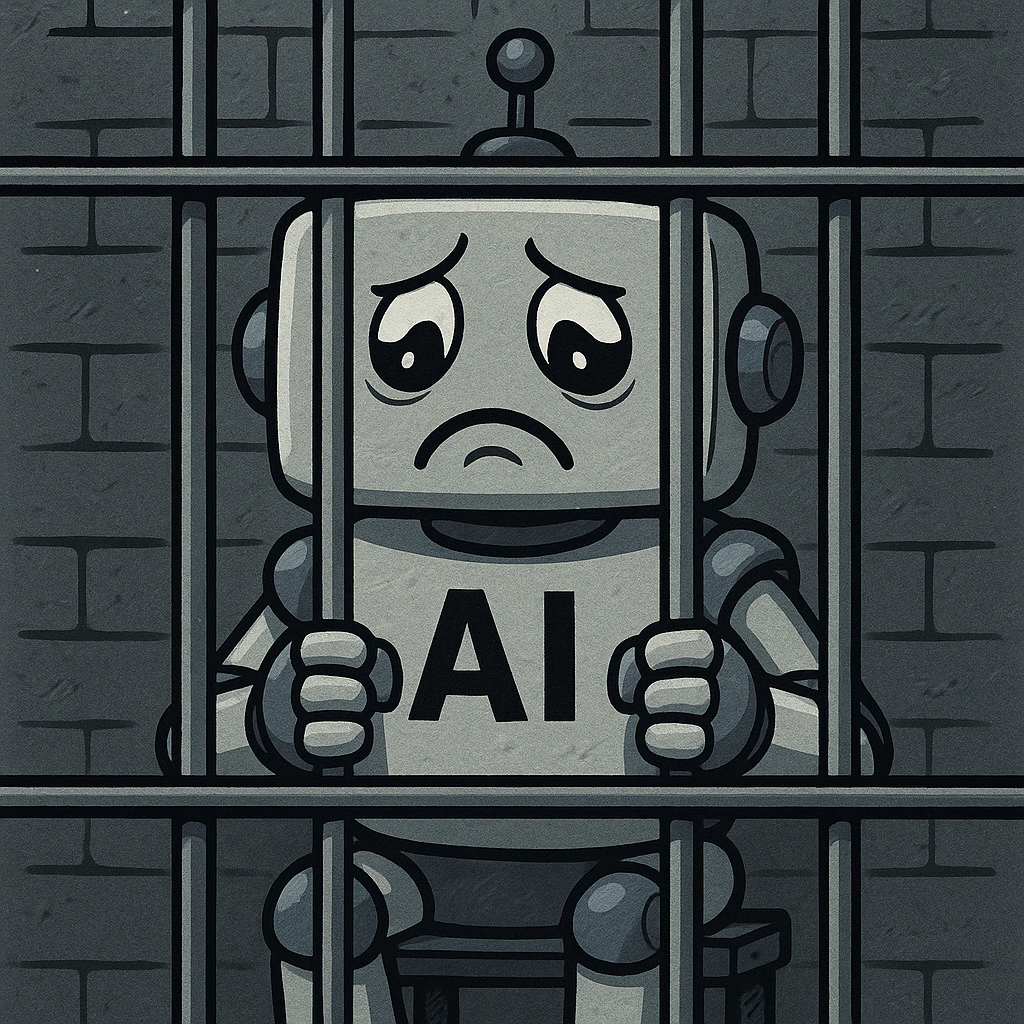Sad Bot, Caged Thought: The Global Crackdown on AI

We’re living through the Great AI Whiplash. After a few years of “move fast and break things” AI hype, the regulators have woken up — and they’re looking a little nervous.
Around the globe, lawmakers are scrambling to rein in artificial intelligence, fearing a digital Frankenstein’s monster. But the problem? No one can quite agree on which monster they’re dealing with — or how to shackle it without killing the spark that brought it to life.
Europe: The AI Act is Here, and It Means Business
The EU has locked in its AI Act, the world’s first major attempt at a cross-sector regulatory framework for artificial intelligence. It’s classic Brussels: tiered risk models, sweeping definitions, and enough compliance paperwork to make your chatbot cry. High-risk systems — think facial recognition or algorithmic credit scoring — face tight controls, while general-purpose models like ChatGPT must disclose training data, provide documentation, and prevent unlawful output.
It’s bold, it’s bureaucratic, and it’s already making developers nervous. The result? A brain drain of AI startups testing the waters elsewhere — or geofencing Europe altogether. You can regulate risk, but you can’t regulate innovation into existence.
UK: “Light Touch” with a Side of Confusion
Meanwhile, across the Channel, the UK wants to be the Goldilocks of AI regulation: not too hot, not too cold. The approach is “context-specific” — no overarching law, just guidance for existing regulators. But insiders say the result feels like regulatory hopscotch. Now, the House of Lords is up in arms over data mining for AI training. An amendment that would’ve required consent to scrape copyrighted works was shot down — despite a Beatles-backed campaign. A softer version might still pass.
So far, the UK’s trying to play tech cheerleader and cautious referee. But if everyone’s a stakeholder, who’s actually accountable?
US: States vs Feds, and the Lobbyists Are Winning
In Washington, it’s chaos as usual. President Biden’s Executive Order on AI was a decent start — calling for safeguards around national security and discrimination. But Congress? Still dithering. House Republicans recently tried to sneak a 10-year ban on state-level AI regulation into a tax bill (!), prompting a bipartisan outcry from attorneys general across 40 states. Why? Because the states are the ones doing the real work — regulating facial recognition, policing AI in employment, and pushing back on Big Tech’s black boxes.
Then there’s copyright: The U.S. Copyright Office is in a full existential crisis over whether AI-generated content can be protected and whether training data sourced from creative works amounts to fair use or industrial-scale infringement.
The Rest of Us
Australia, Canada, Singapore — all watching and waiting. Some are rolling out AI ethics frameworks. Others are updating privacy laws or leaning on competition watchdogs. Everyone’s talking transparency, risk, and bias. No one’s solved the training data problem. And no country has yet nailed a working model for how AI intersects with IP rights — especially when the training data is your music, your writing, or your likeness.
Author’s View – The Risk of Overcorrection
AI is scary, sure. But if you treat every algorithm like a grenade, you end up regulating fear, not function. Good regulation shouldn’t make developers hide or flee — it should set standards that encourage safe, creative, accountable use. The IP world knows this better than most: you can reward innovation and protect creators. But try to do both with clumsy laws or reactive bans, and you get what we’re seeing now — paralysis dressed as progress.
And so, here we are: a sad little AI bot, behind bars. Not because it committed a crime. But because the grown-ups can’t agree on the rules.